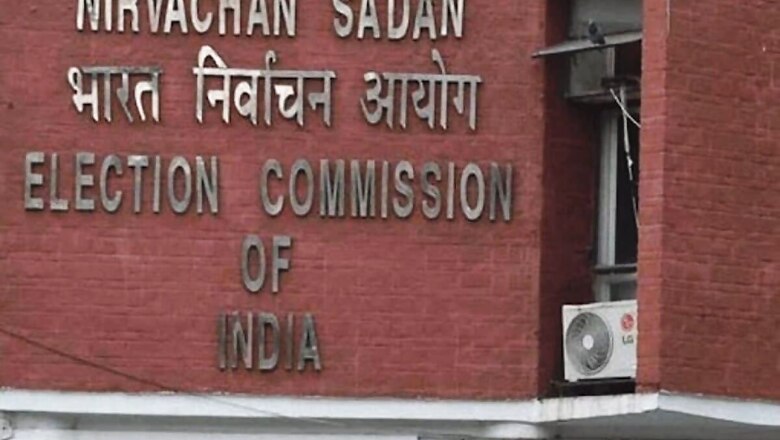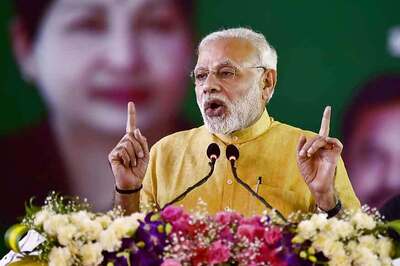
views
The Madras High Court on Wednesday directed the Election Commission of India (EC) to devise a procedure for dealing with complaints against the contesting candidates promptly. The ECI should issue a notice to the relevant candidate and his explanation sought and the matter closed by a reasoned order if the explanation is found suitable or satisfactory.
If the explanation is found unsatisfactory, it should pursue the matter with full rigour, irrespective of the political allegiance of the relevant candidate, the first bench of Chief Justice Sanjib Banerjee and Justice Senthilkumar Ramamoorthy said. The bench was disposing of a PIL petition from B Ramamoorthy, a voter, who had prayed for a direction to the Jolarpettai Assembly constituency Returning Officer to take action on his complaint against former AIADMK Minister K C Veeramani, the party candidate for the April 6 polls and file a case before the local Judicial Magistrate to take action under Sec. 125-A of the Representation of the People Act read with Sec. 177 of the IPC .and Sec.195 CrPC.
In his complaint, Ramamoorthy had alleged that Veeramani did not disclose material facts in his nomination papers submitted before the Assembly elections. When the matter was taken up on July 12, the bench was told by the ECI that in terms of a circular prevailing from the year 1966, it would not institute criminal action in respect of the matters complained of by the petitioner, as the complainant was neither the affected person nor a contesting candidate.
Moreover, Veeramani had lost the election. Castigating the ECI, the bench on that day observed that it was disturbing that the Election Commission would take no action even when it was brought to its notice that a candidate had furnished false information or filed a false affidavit or had concealed material information, when such candidate was obliged to truthfully make the fullest disclosure.
It appeared to be an anomaly to this court that the constitutional watchdog, exclusively tasked with the job of overseeing Parliamentary and Assembly elections, would turn a blind eye to allegations of false declarations or false affidavits filed before it by a candidate contesting such an election. At a Parliamentary or Assembly election, every candidate at every constituency has to file an affidavit in Form 26 along with the nomination papers.
Such affidavit, inter alia, requires the candidate to disclose information pertaining to his criminal antecedents, assets and liabilities and educational qualifications. Section 125-A of the Representation of the People Act, 1951, which was inserted by way of an amendment to the statute in 2002, makes the failure to furnish the information required under Section 33-A of the Act punishable.
The provision also mandates that candidates furnishing false information knowing or having reason to believe the same to be false and candidates concealing any information otherwise required to be furnished may be punished with imprisonment for a term which may extend to six months, or with fine, or with both, the bench pointed out. Before this order was signed, the ECI told the bench that a wrong submission was made on July 12. A notification was issued on June 2020, which clarified that it would robustly address the challenge to ensure free, fair and ethical elections in the country.
“In the light of the present submission of the Election Commission that it will consider the petitioner’s representation afresh, the petition may be disposed of at the receiving stage,” the bench said today and gave the direction.
Read all the Latest News, Breaking News and Coronavirus News here.




















Comments
0 comment